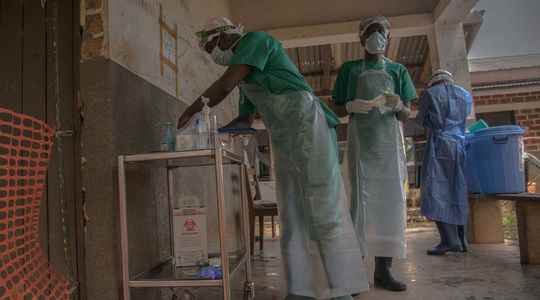Barely the obligation to wear a mask – one of the last anti-Covid measures – lifted in transport in France, would a new health threat emerge? If no case has yet been detected on the national territory, several countries such as Spain, the United Kingdom or Canada have recorded infections with monkey pox, or simian pox, an endemic disease in East Africa. West caused by a virus. This multiplication of cases makes health authorities fear a spread across borders, and contamination between human beings.
- Where have the cases been detected outside of Africa?
The United Kingdom, the first country to report cases from May 6, said in a statement on Wednesday evening that it had identified two new ones, bringing the number of people infected to nine. With the exception of the first individual affected by monkeypox, who had recently traveled to Nigeria, the other patients were infected in the United Kingdom, according to the British health security agency (UKHSA).
“These latest cases, together with reports of cases in various European countries, confirm what we initially feared that there may be transmission of monkeypox within our communities,” explained the Dr Susan Hopkins, UKHSA’s chief medical adviser, was quoted in the statement.
On Wednesday, Spain, Portugal, Canada and the United States reported having spotted the presence of monkeypox, or what appears to be, on their territory. The two countries on the Iberian Peninsula reported having identified around 40 suspected or confirmed cases of this disease, which led the authorities to issue a national health alert.
In Canada, more than a dozen suspected cases were being examined in Montreal on Wednesday, according to the public channel Radio-Canada, which quotes the city’s health authorities. And in the United States, a man who had recently traveled to Canada tested positive for this disease in the state of Massachusetts.
- What are the symptoms ?
Monkeypox is related to smallpox, a disease that was eradicated in 1980. But it is less transmissible, less deadly, and causes milder symptoms. The illness usually lasts two to four weeks.
Symptoms, which can appear between five and 21 days after infection, include fever, headache, muscle aches, back pain, swollen lymph nodes, chills and fatigue. Rashes may occur, often on the face, and spread to other parts of the body, including the genitals. “Secondary bacterial infection of the skin and lungs may occur,” adds The MSD Manualreference book for doctors and pharmacists.
Several British patients have been admitted to infectious disease wards in various hospitals. However, there is no treatment for monkeypox, which is transmitted by contact with an infected person. via body fluids, including saliva. This viral infection heals itself.
- How is the virus transmitted?
“Despite the name, non-human primates are not reservoirs of the simianpox virus. Although the reservoir is unknown, the main candidates are small rodents in the tropical forests of Africa, mainly in West and Central Africa ( …). Monkeypox is likely transmitted by animals through bodily fluids, including salivary or respiratory droplets or contact with wound exudate,” says The MSD Manual. The authorities want to be generally reassuring. They point out, in Spain and Portugal, that the disease is not very contagious between humans.
The recent increase in apparent outbreaks nevertheless worries the World Health Organization (WHO), which indicated on Monday that it was taking a close interest in the fact that some of the cases in the United Kingdom appear to have been transmitted within the homosexual community. With the exception of the first case – the infected person had recently traveled to Nigeria, West Africa where this viral disease is endemic – the patients were infected in the United Kingdom, raising fears of transmission within the community. .
“We are observing transmissions among men who have sex with men”, which is “new information that we must study properly to better understand the dynamics” of transmission, said Ibrahima Socé Fall, deputy director general of the WHO for emergency response. But “anyone, regardless of sexual orientation, can spread monkeypox,” the United States Centers for Disease Prevention and Control (CDC), the country’s main federal health agency, said.
Maria Van Kerkhove, a WHO official, said the organization was working “very closely with its regional office, the European Center for Disease Control and especially the UK health security agency to assess each of these cases, the source of their infection” and carry out “case tracing”.
